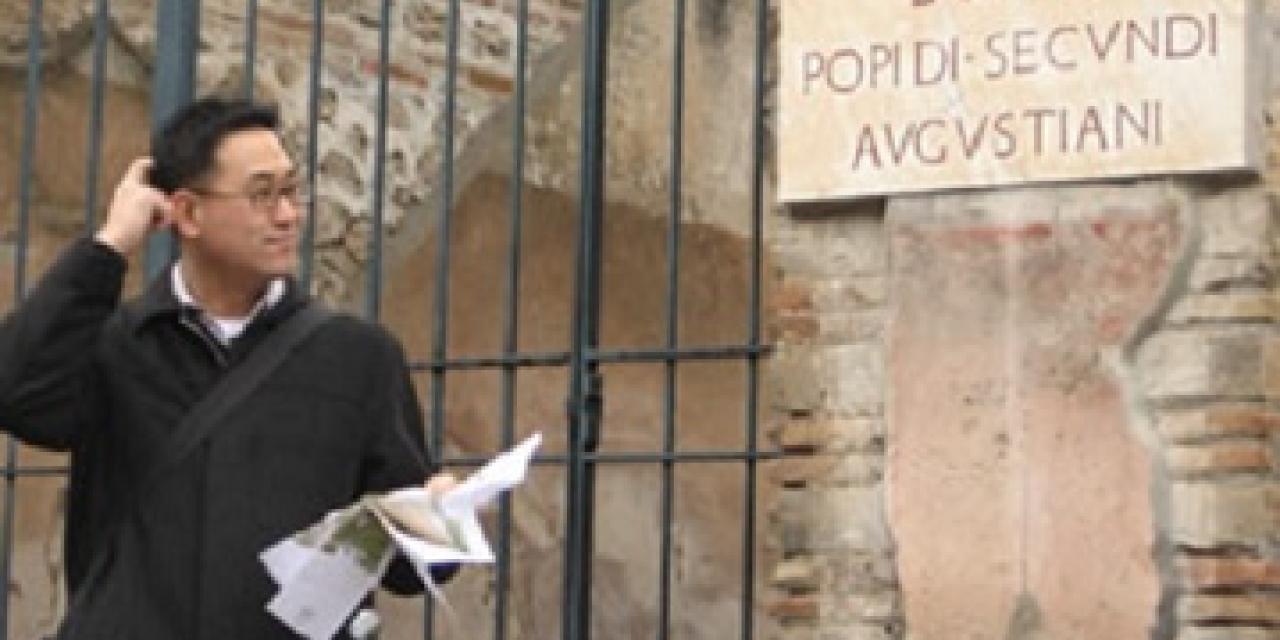Young R. Kim teaches history and classics at Calvin College in Grand Rapids, Michigan. He’s fascinated with the ancient Mediterranean world. As a Fulbright Scholar in Cyprus, Kim researched Epiphanius of Cyprus, a 4th century bishop active in church politics and theological disputes. Kim’s books are St. Epiphanius of Cyprus: Ancoratus (Catholic University of America Press, 2014) and Epiphanius of Cyprus: Imagining an Orthodox World (University of Michigan Press, forthcoming).
What made you so interested to learn more about Ephiphanius of Cyprus?
I first "met" Epiphanius when I was a graduate student at the University of Michigan. My doctoral advisor suggested that I spend a summer reading Epiphanius's writings, and, after that, I was completely hooked. Epiphanius was an expert on orthodoxy and heresy, and I was deeply interested in how ancient Christians articulated and defended what they understood to be right beliefs and practices.
What’s an example of something Epiphanius talked or wrote about that seems especially relevant to churches today?
To be honest, I would say that Epiphanius can teach us much about what not to do. He was at times extremely dogmatic and treated those with whom he disagreed with very little charity. We can learn from him that we ought to be more graceful, listen more carefully and take longer before we speak.
Can you describe a spiritual practice from Epiphanius that could be useful today?
Epiphanius was pastorally minded and defended his faith with conviction. He embraced a life of moderate asceticism and study. He was emphatic about catechesis and the importance of creedal confession as a foundation for faith. At the end of his treatise Ancoratus, Epiphanius included two creeds to express what he understood to be orthodox faith. The first creed was the Nicene Creed and the second was one he developed himself. In Ancoratus, Epiphanius encouraged Christians to “help each of those who are being catechized, who intend to come to holy baptism, not only to proclaim to their sons in the Lord ‘the believing,’ but also to teach specifically, as the same mother of all [the Church]…’the saying’ [the Nicene Creed].”
During your Fulbright year in Cyprus, what struck you about the church you and your family attended?
We spent our year in Cyprus worshiping at St. Paul's Cathedral in Nicosia. It is an Anglican church that for me and my family was a place of tremendous spiritual renewal and rest. We loved the consistency of weekly worship and the opportunity to partake in communion regularly. We made friends from all over the world—Cyprus, the UK, Australia, South Africa, Egypt, Indonesia, the Philippines, India and Sri Lanka. We felt like all the nations of the world worshiped together in one church.
| Read an article (pages 5 and 11) and blog post about Young R. Kim’s Fulbright research on Epiphanius of Cyprus. |

